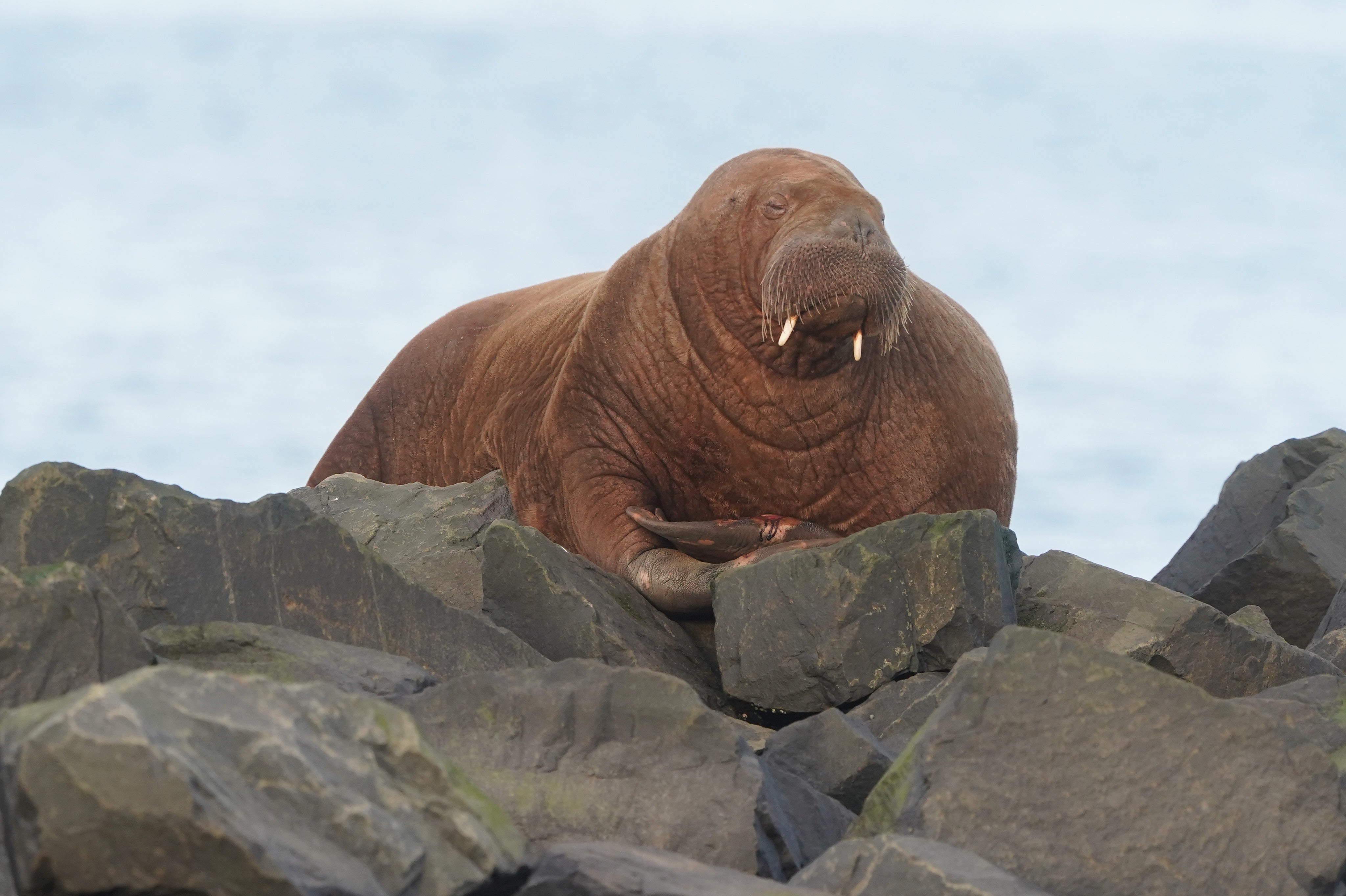Mea Culpa: Space walruses on a mission to save the planet
John Rentoul minds our language in last week’s Independent


This was my favourite headline of the week: “Public urged to count walruses from space to help monitor melting sea ice.” A wonderful idea for a hit children’s TV series, featuring space walruses arriving from another planet to help reverse climate change. There was no need to correct this charming ambiguity, but we could have said “walruses visible from space”, as the report was of a project asking amateur environmentalists to count walruses on satellite images.
The article also provided a rare example of that old journalistic staple, “an area larger than Wales”. We said: “The British Antarctic Survey said the satellites would generate thousands of high-resolution images of walruses congregating on more than 25,000km2 of Arctic coastline.”
I know we were only repeating what the British Antarctic Survey said – including the comparison with Wales – but this is confusing. A coastline is a length, and would be measured in kilometres, not square kilometres; that would seem to be referring to a coastal area, which would be long and thin, and comparing it with Wales, which is not.
We did edit the article after I first read it, but only to change “walruses” to “walrus” throughout. We had a similar kerfuffle over the plural of mink last year, when the farmed animals in Denmark were infected with coronavirus. I think walrus is the scientific plural, especially when referring to the entire species, but walruses is the usual conversational form. Walruses from Space is a much better title for the children’s TV series than Walrus from Space, anyway.
Female Bond: An early version of a comment article defending Carrie Johnson from sexist attack fell victim to sexism itself. It said: “The myth is building that the reliable, secure, reactionary, old-school libertarian Tory has been captured and moulded by this metropolitan elite temptress, like a female agent in a James Bond movie.” We wouldn’t say “male agent”, so the “female” had to go. And we changed “like” to “as though she were”, to make clear that she was the agent, not him.
Journalese: I’ll shut up about “amid” in a moment, I really will, but this headline was such a clumsy example from last weekend that it should not escape censure: “Black civil servant handed six-figure payout amid warning of ‘systemic’ race issues in Whitehall.” Not just “amid” but the mushy “issues” when we mean “problems”. We needed something like: “Black civil servant handed six-figure payout as Whitehall is warned of ‘systemic’ race discrimination.”
Mouldy fruit science: I know we were quoting the Independent Office for Police Conduct, so we couldn’t change it, but this is a lesson for others. The IOPC said, when it reported its findings of racism, sexism, homophobia, bullying and sexual harassment in the Metropolitan Police, that this was “not isolated or simply the behaviour of a few ‘bad apples’”. The point about a bad apple is that the rot spreads: a bad apple is by definition not isolated, because it can spoil the whole barrel. The IOPC managed to say the opposite of what it meant.
Basis points: One lifeless phrase that we never need is “on a daily basis”. Instead of saying that President Putin “was being tested for Covid on a daily basis”, we could have said “every day”. And instead of writing about a charity which helps lonely old people “by matching them with trained volunteer befrienders who visit on a regular basis”, we could have said “regularly”.



Join our commenting forum
Join thought-provoking conversations, follow other Independent readers and see their replies
Comments